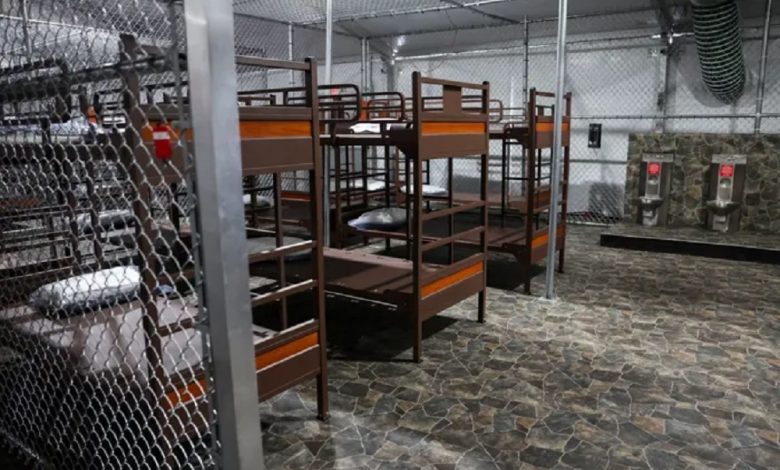
With its annual budget suddenly more than tripled and political pressure intensifying under former President Donald Trump to speed up deportations, the U.S. Immigration and Customs Enforcement (ICE) agency is racing to expand its detention capacity by building temporary tent facilities. Administration officials have identified the lack of detention space as a major obstacle preventing them from executing removals at the pace Trump had promised.
Officials now aim to raise the number of available detention beds to 100,000 by the end of the year — a significant jump from around 40,000 when Trump first took office. This expansion is backed by an additional $45 billion in emergency funds allocated for detention operations through the end of Trump’s second term, part of a broader Republican-led tax and spending package recently passed by Congress.
Internal government documents show that the new expansion strategy relies heavily on this financial injection, bringing ICE’s total authorized spending to $74 billion through 2029. This amount more than triples the agency’s current $8.7 billion annual budget, making it the most heavily funded law enforcement body within the federal government.
Hardened Tent Camps and Military Sites
The current plan prioritizes the rapid construction of thousands of so-called “soft-sided facilities,” or fortified tents, across U.S. military bases and existing ICE prisons. Officials reportedly prefer this approach because it allows for the installation of a large number of beds at centralized locations rather than dispersing smaller facilities nationwide.
However, the heavy reliance on temporary structures has sparked internal concerns. Some officials and Republican allies have warned that holding migrants long-term in such fragile facilities could be dangerous — especially in flood-prone or hurricane-vulnerable regions.
Florida has already taken the lead among Republican states by opening a state-run detention center at an abandoned airfield in the Everglades — a facility nicknamed “Alligator Alcatraz.” The administration is also pressuring other GOP-led states to follow suit.

Top Expansion Priorities and Locations
Documents list nine key projects as ICE’s top priorities, aimed at adding over 9,000 new detention beds. Chief among them is a 5,000-bed tent camp at Fort Bliss in El Paso, Texas. Although a previous federal contract for the site was canceled, plans are underway to activate the facility by August.
Other expansion efforts include adding beds at the Hudson Correctional Facility in Colorado, Camp Atterbury in Indiana, and Joint Base McGuire-Dix-Lakehurst in New Jersey.
State vs. Private Detention Strategy
Senior officials in the Department of Homeland Security — including Secretary Kristi Noem and top advisor Corey Lewandowski — reportedly favor relying on state and local government-run centers rather than private prison companies. This strategy would shift operational responsibility to the states, minimizing federal liability if problems arise at hastily built facilities.
Some within the detention industry argue that the plan places undue burdens on state governments. Still, the administration insists migrants have a choice: according to DHS spokesperson Tricia McLaughlin, “No one has to be detained — they can opt for voluntary departure.” The administration is offering $1,000 and a free plane ticket home to those who choose this route.
Financial Leverage and State Cooperation
DHS has informed state officials that $600 million in unused Federal Emergency Management Agency (FEMA) funds, initially earmarked for migrant shelters, can now be redirected to cover detention costs.
Indiana’s Republican Governor Mike Braun said he has no concrete plans yet but is open to erecting tents or using existing facilities if the federal government covers expenses.
Meanwhile, in Texas, although Governor Greg Abbott’s offer to provide two state-run prisons with a combined 4,000-bed capacity was not accepted, ICE documents show plans for multiple camps throughout the state, including in El Paso, Port Isabel, Pearland, Dilley, and Hutto.



